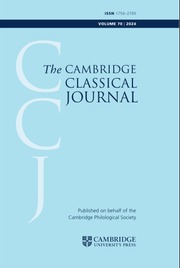Article contents
Character and consensus in Plato's Protagoras
Published online by Cambridge University Press: 28 February 2013
Extract
If we look to the Protagoras for philosophical lessons, it may seem an irritating patchwork of niggling argument, irrelevant digressions, false starts and downright fallacy. Read as a play in which the most outstanding and individual minds of a brilliant period meet and engage in a battle of wits, it will give a different impression. That is how it should be read. A serious discussion of the nature of virtue, and how it is acquired, must be left, as Protagoras said, for another occasion - and, we may add, for different company: it is not to be achieved in the competitive atmosphere of a public gathering of Sophists.
The Protagoras is palpably interested in character, vividly reviving a lost intellectual generation. But it also seems to argue for a conclusion, albeit a very provisional one. How should we relate the dialogue's array of luminaries to its argument? A reader may be tempted, as in the quotation above, to use the dialogue's literary lustre merely to excuse its arguments from charges of philosophical clumsiness. But by the end of the work we have been shown apparently successful arguments for the unity of virtue, with Protagoras' attempt at a counter-example refuted (360d8–e5).
- Type
- Research Article
- Information
- Copyright
- Copyright © The Author(s). Published online by Cambridge University Press 2005
References
BIBLIOGRAPHY
- 2
- Cited by


